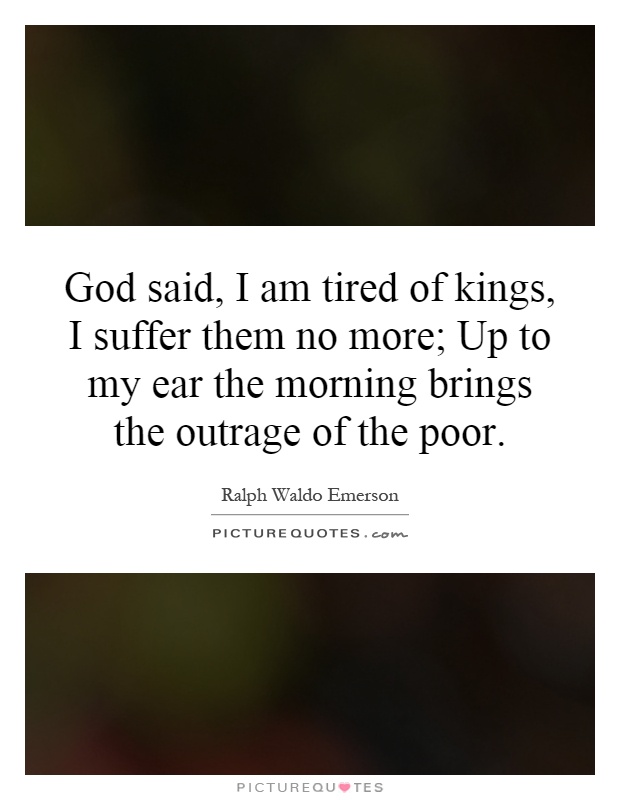God said, I am tired of kings, I suffer them no more; Up to my ear the morning brings the outrage of the poor

God said, I am tired of kings, I suffer them no more; Up to my ear the morning brings the outrage of the poor
Ralph Waldo Emerson, a prominent American essayist, poet, and philosopher, was known for his transcendentalist beliefs and his critique of societal norms and institutions. In his essay "Self-Reliance," Emerson emphasizes the importance of individualism and self-reliance, urging people to trust their own instincts and beliefs rather than conforming to the expectations of society. This sentiment is echoed in the quote, "God said, I am tired of kings, I suffer them no more; Up to my ear the morning brings the outrage of the poor."Emerson's rejection of kings and the ruling class can be seen as a rejection of traditional authority and hierarchy. He believed that true power and wisdom come from within, not from external sources such as kings or governments. By stating that God is tired of kings, Emerson is suggesting that divine authority does not reside in earthly rulers, but rather in the hearts and minds of individuals.
The phrase "the outrage of the poor" speaks to the injustices and inequalities that exist in society. Emerson was a strong advocate for social reform and believed that the poor and marginalized should be given a voice and a platform to express their grievances. He saw the suffering of the poor as a direct affront to God, who he believed stood in solidarity with the oppressed and downtrodden.
Emerson's words are a call to action, urging people to stand up against injustice and inequality, and to challenge the status quo. He believed that true progress and enlightenment could only come from a rejection of traditional authority and a commitment to individual freedom and self-expression.












 Friendship Quotes
Friendship Quotes Love Quotes
Love Quotes Life Quotes
Life Quotes Funny Quotes
Funny Quotes Motivational Quotes
Motivational Quotes Inspirational Quotes
Inspirational Quotes